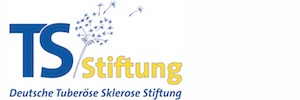Click here to read more in the Frankfurter Neue Presse (german)
Click here to read more on the website of the University of Oldenburg (german)
Click here to read more on the website of the German TS Foundation (german)
For the second time, the “German Tuberous Sclerosis Foundation” has awarded the 10,000-Euro prize for research. This year, the prize was awarded to the scientist and head of the Laboratory for Metabolic Signaling Prof. Dr. Kathrin Thedieck. Prof. Thedieck works at the University Medical Center Groningen (UMCG) and the European Medical School Oldenburg-Groningen (EMS), jointly led by the universities of Oldenburg and Groningen. The recipient was selected by an expert jury chaired by the chairman of the board of the Charité Berlin, Prof. Dr. Carl Max Einhäupl. The award ceremony was held by Prof. Dr. Carl Max Einhäupl together with the founders of the German Tuberous Sclerosis Foundation, Anke Koch and her husband Roland Koch, former Prime Minister of Hessen, and today’s Chairman of UBS Europe SE. Both had decided in 2012 to strengthen their commitment in the fight against tuberous sclerosis and therefore found the Tuberous Sclerosis Foundation.
“By awarding the research prize, we would like to promote research into the disease and, above all, advance the development of novel treatment options. Furthermore, we want to increase awareness about this disease, which is still unknown to many people today.”, the couple said. Tuberous sclerosis (TSC) is a complex system disease with tumor-like changes in almost all organs of the human body. Most patients suffer from epileptic seizures and mental disability, often associated with behavioral disorders such as autism. In addition, there are tumors in the heart, brain, kidneys and lungs as well as skin manifestations. Until now, the disease is not curable and only the symptoms can be treated. One of 6,000 newborns suffers from tuberous sclerosis. As research incentives for pharmaceutical companies are low due to the scarcity of the disease, the development of treatment approaches still requires great efforts.
This year’s awardee, Prof. Dr. Kathrin Thedieck, is dedicated to this challenge as a part of her research. She investigates the disease with a particular focus on new signaling and metabolic pathways that are altered in TSC and represent potential points of intervention for new therapies. An important step in this direction was the discovery of the involvement of the TGF-β signaling pathway in cellular changes following loss of the TSC1 and TSC2 genes that trigger TSC disease. Thedieck and her coworkers are currently investigating whether and how their discovery can be translated into new treatment strategies for TSC, for example in tumour therapy. “Being awarded the Research Prize of the German TS Foundation is a great honor and recognition of the efforts and achievements of recent years. It was the effort of our entire team, especially Dr. Antje Thien and Mirja Tamara Prentzell, who enabled this success.”, said the prize-winner. With her research project “The TGF-β beta signaling pathway as a novel therapeutic target for TSC”, she was able to conquer the other applicants and convince the expert jury. The prize money of 10,000 euros is freely available to her as part of her research work.
The foundation
25 years ago, parents of children suffering from disabilities caused by TSC founded a self-help group. Anke Koch has been a sponsor of the self-help association Tuberöse Sclerose Deutschland eV (TSDeV) since 1999 and her husband Roland Koch also took over the patronage in September 2010, after his departure from the post of Hessian Prime Minister. In 2012, both decided to expand their commitment and found the “German Tuberous Sclerosis Foundation”. In the meantime, the association und foundation have succeeded in establishing a nationwide network for counseling and medical care, enabling provision of rapid and local assistance by specialists. This includes recreational and social activities.
